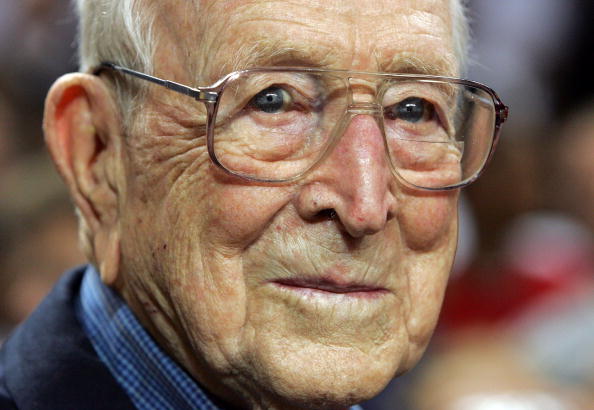Experience vs. Talent: Which is Worth More to Elite Teams?
Posted by rtmsf on July 26th, 2011It’s an ancient debate in college basketball — which would you rather have: experience or talent? Most coaches will quickly answer, “both,” but in today’s 1-and-done era of hoops, building a stacked team of juniors and seniors is not as possible as it once was. John Wooden once famously said, “I’d rather have a lot of talent and a little experience than a lot of experience and a little talent,” and although he usually had bushels of both on hand at UCLA, his sentiment has come to define the attitude of most modern-day coaches. John Calipari at Kentucky is the poster boy for recruiting grade A talent that he knows is likely to only spend a single season in Lexington, taking the stance echoed by Wooden that if he has enough ballers at his disposal, he can push them over the top to a Final Four and (presumably) a national championship. On the other hand, a history of the 1-and-done era has shown that even though teams with Kevin Loves, Derrick Roses and Brandon Knights occasionally break through to the final weekend, they don’t win national championships. Experience, rather than pure talent, seems to carry more weight in early April.
So which is preferable, and which has more actual, on-court value to elite teams? Our friends over at Burnt Orange Nation recently took a stab at answering this question, and while several of the findings generally support common basketball sense, there was one item that stood out upon our review of BON’s well-considered post. First, the findings that support what we all fundamentally know:
-
BON found that there is a correlation between SRS (Simple Rating System, a metric of success showing how far above the scoring margin mean a team plays) of elite teams and the percentage of the available minutes played by a top 30 RSCI recruit. In other words, having better talent playing on the roster generally makes teams better.
-
Interestingly, BON found that there was no correlation between the SRS of elite teams and the percentage of the available minutes played by RSCI recruits rated from #31-#100. Therfore, at the elite level of basketball, it is only the elite recruits who tend to impact teams’ success.
-
BON also showed there is a correlation between the SRS of elite teams and total minutes of experience. Put simply, the more returning minutes a team has, the better it should be.
But it was the following finding by BON that provided something completely new and interesting: A rough way to quantify the relationship between talent and experience among elite teams:
In a typical college basketball season, a starter earns about 1100 minutes played, and plays about 15% of the total minutes for his team. Using our regression model, getting a player with a top 30 RSCI ranking into the starting lineup has a slightly lower, but similar effect on predicted SRS as does returning one player who has started for two seasons, or two players who have each started for one season. Adding an additional top 30 recruit to the starting lineup improves the predicted SRS by about 2 points.
So… an elite recruit ranked in the RSCI top 30 is roughly equivalent in value to a single two-year starter or two one-year starters. That’s something we haven’t seen before, and if we’re translating it correctly, this means that a school like Kentucky with its four incoming top 30 players is effectively putting the equivalent of four experienced juniors on the floor to go along with returning sophomore and potential All-American Terrence Jones. Contrastingly, North Carolina is adding two frosh studs of their own in James McAdoo and PJ Hairston, but neither is likely to be a starter in a packed UNC lineup, so their added value is marginalized in this analysis. Which is preferred — a team full of talented freshmen who play like juniors or a team full of talented juniors who actually are juniors? Tough call, right?
Experience vs. talent. So far in the 1-and-done era, experience has slightly outperformed talent when it comes to winning March Madness, but teams are rarely comprised in such a way as the above example where the difference in experience is so starkly clear. How great is it that we’re presented next season with a natural experiment to test the theory as UNC and Kentucky battle it out on the court and in the polls all year long? We’d love to see BON mock up some of the top 20 or 30 teams based on their analyses to get a sense as to where those teams might be predicted to fall on its SRS metric for next season. Maybe with some light pressure, we can get them to do it. Either way, thanks for the insightful analysis, guys.












































Chances are, by definition, elite teams are highly talented to begin with. I’ve always been in the experience camp but especially when it comes to elite teams. The experience of having done something or been in a particular position before is invaluable in basketball to begin with but especially in postseason play. Experience can also make up for small gaps in talent level, although at the elite level everyone is pretty much even. At the highest levels of college basketball, I’ll take experience without a doubt.
talent wins over experience in the regular season, but experience generally trumps talent in the postseason